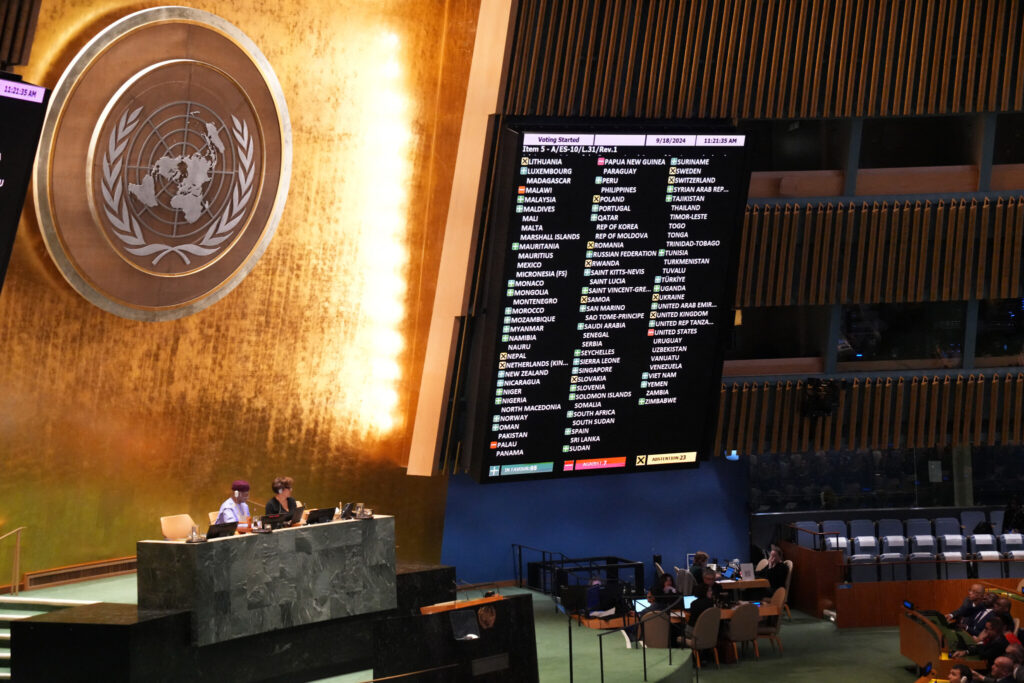
[Photo: AFP]
By Al-Qalam Reporter
Pro-Palestinian supporters on South African WhatsApp groups were horrified that Malawi had voted against a Palestinian UN resolution demanding an end to Israel’s occupation of Gaza and the occupied West Bank within a year. – although 124 member countries voted overwhelmingly in favour on Wednesday.
The nonbinding resolution put forward by the Palestinian Authority was based on the advisory opinion of the International Court of Justice (ICJ) back in July, which said Israel’s presence in the occupied territories was unlawful and must end.
Fourteen countries voted against it, including Israel and the United States – and Malawi.
Malawians have strong ties with Israel as the country exports non-skilled labour to the Jewish state to work in farms.
In addition, Malawi has also strong ties with the US which is a strong ally of Israel.
Some social media commentators said they were disappointed by the stance taken by the Malawian Government and that Malawian workers “should be sent back”.
One commentator retorted. “Funny how people who want to “send Malawians back” because of the actions of a government that oppresses them say nothing about their investments in Dubai.
“Surely, you’ll be pulling those out as well?
“Or is it because it’s easy for you to oppress the Malawian shopkeeper or cleaner who fled a country that the British empire ruined?
“Or is it simply because Malawian civilians aren’t the right skin colour for us to recognise that they also face the same evil American empire that we all do?
Meanwhile, the 43 countries that abstained include US allies Australia, Canada, Germany, and Ukraine.
Their ambassadors said that while they support a two-state solution, they cannot vote in favour of a resolution that does not spell out Israel’s right to defend itself.
Canada’s ambassador to the UN Bob Rae said the resolution lacks a condemnation of terrorism and suggests that only one side, Israel, is responsible for the unlawful acts in the occupied territories.
Neither the ICJ ruling nor the resolution passed on Wednesday is legally binding but it still holds weight.
“It’s an important precedent because one of the main problems with Palestinian issues for the last 75 years is that nobody was putting actual deadlines,” former advisor to Palestinian leadership Nizar Farzakh told Middle East Eye.
“In international politics, it becomes a talking point that countries like South Africa or the global south, in general, can use, because it’s basically the UN General Assembly– the mood of the international community,” he added.


